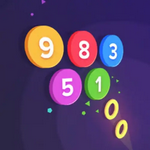
death soul Unblocked
## Death's Game: Exploring the Allure of High-Stakes Mortality in Video Games
The video game landscape is vast and varied, offering escapades across fantastical realms and thrilling adventures. But a particularly captivating niche explores the concept of death itself, not as a game over screen, but as a core mechanic, a central theme, or even the ultimate goal. These "death soul games," as we might call them, offer a unique blend of risk, reward, and often, profound philosophical questions.
Unlike traditional games where death is a setback, in death soul games, it's often a catalyst for progression. This can manifest in several ways:
* Permanent Death with Consequences: Games like *Dark Souls* and its successors famously embrace permadeath (or near-permadeath, depending on the specific game and difficulty). Death isn't simply a restart; it results in the loss of hard-earned resources or progress, forcing players to learn from their mistakes and approach challenges with a newfound caution and strategic depth. This creates a visceral sense of tension and accomplishment.
* Death as a Power Source: In games like *Hades*, death isn't an ending but a loop. Each death provides valuable experience, upgrades, and insights, allowing players to gradually overcome seemingly insurmountable odds. The process of dying and returning, learning and improving, becomes a core gameplay loop.
* Death as a Narrative Device: Games like *What Remains of Edith Finch* use death as a narrative structure, exploring the lives and fates of a family across generations. Here, death isn't a challenge to overcome, but a lens through which the player experiences the story and its emotional weight.
* The Exploration of Mortality: Beyond the mechanics, many death soul games grapple with the philosophical implications of mortality. They often explore themes of loss, grief, resilience, and the fleeting nature of life. This exploration transcends mere gameplay; it encourages introspection and a deeper engagement with the player's own relationship with mortality.
The appeal of death soul games lies in their unique risk-reward dynamic. The constant threat of failure elevates the stakes, making each victory feel hard-earned and deeply satisfying. The frustration of death is offset by the thrill of overcoming seemingly impossible obstacles and the intellectual stimulation of learning from each failure.
However, this genre isn't without its criticisms. The high difficulty can be off-putting for some players, and the potential for repetitive death can lead to frustration. The "git gud" mentality often associated with these games can be exclusionary, discouraging less experienced or casual gamers.
Despite these criticisms, the enduring popularity of death soul games speaks to their unique appeal. They offer a gaming experience unlike any other, pushing players to their limits while simultaneously challenging their perceptions of death, life, and the nature of overcoming adversity. As long as players are willing to embrace the risk, the rewards – both in gameplay and philosophical reflection – can be profoundly rewarding.




































